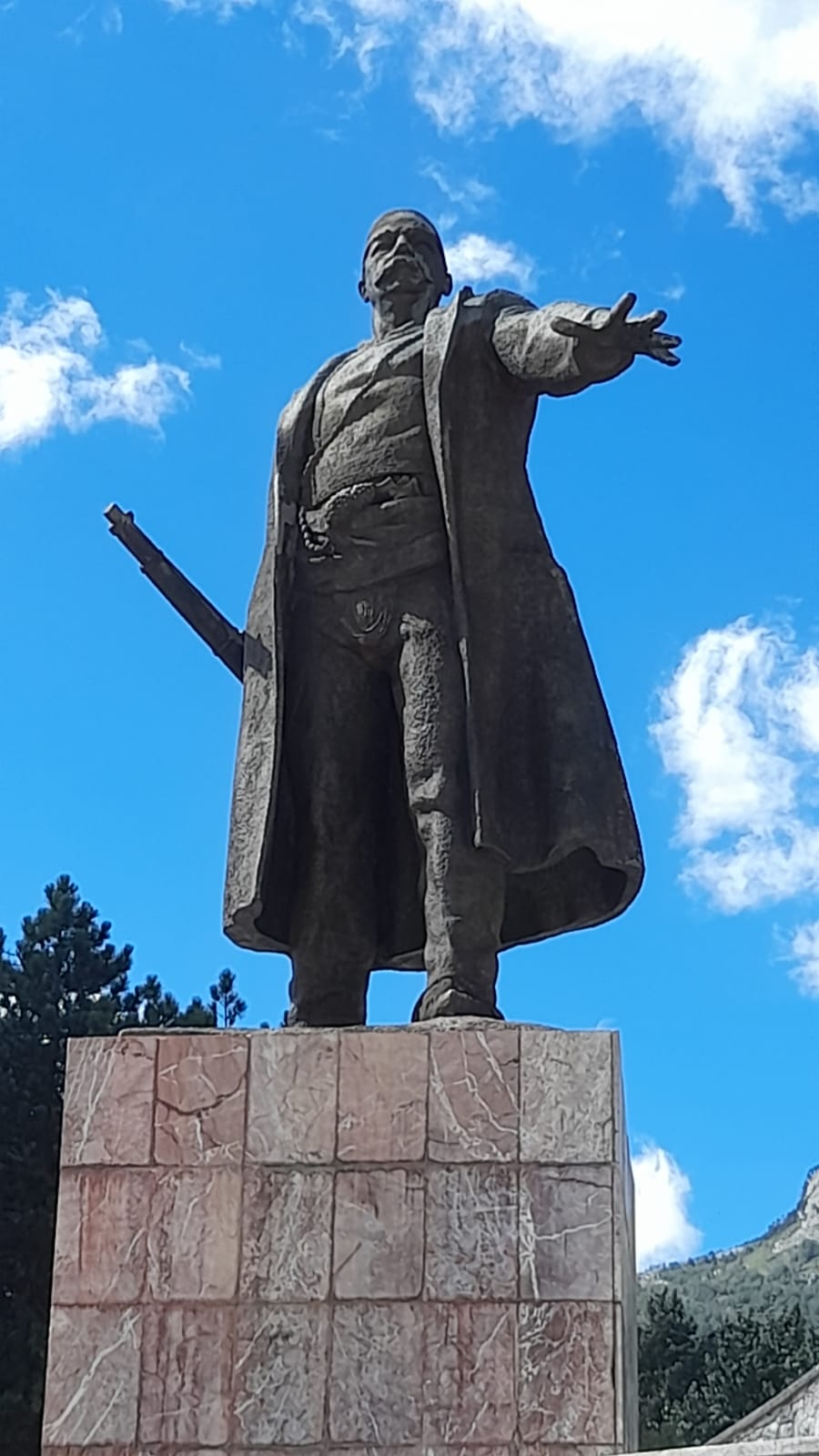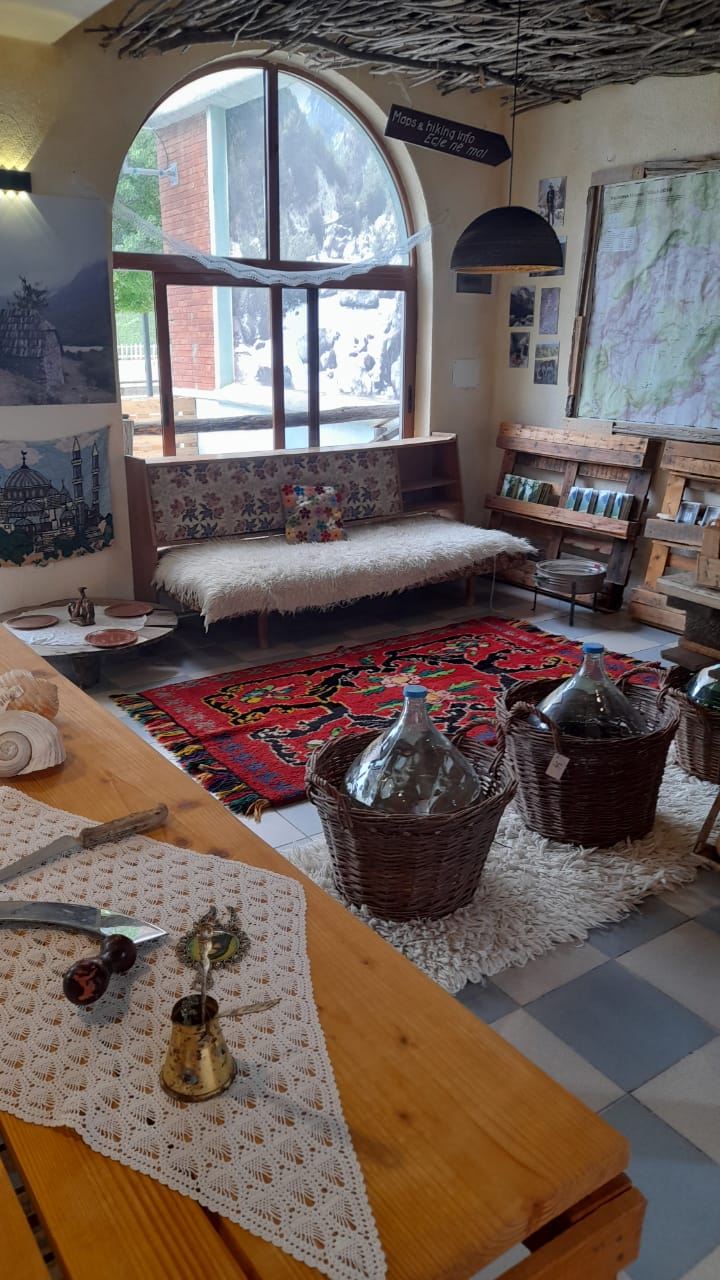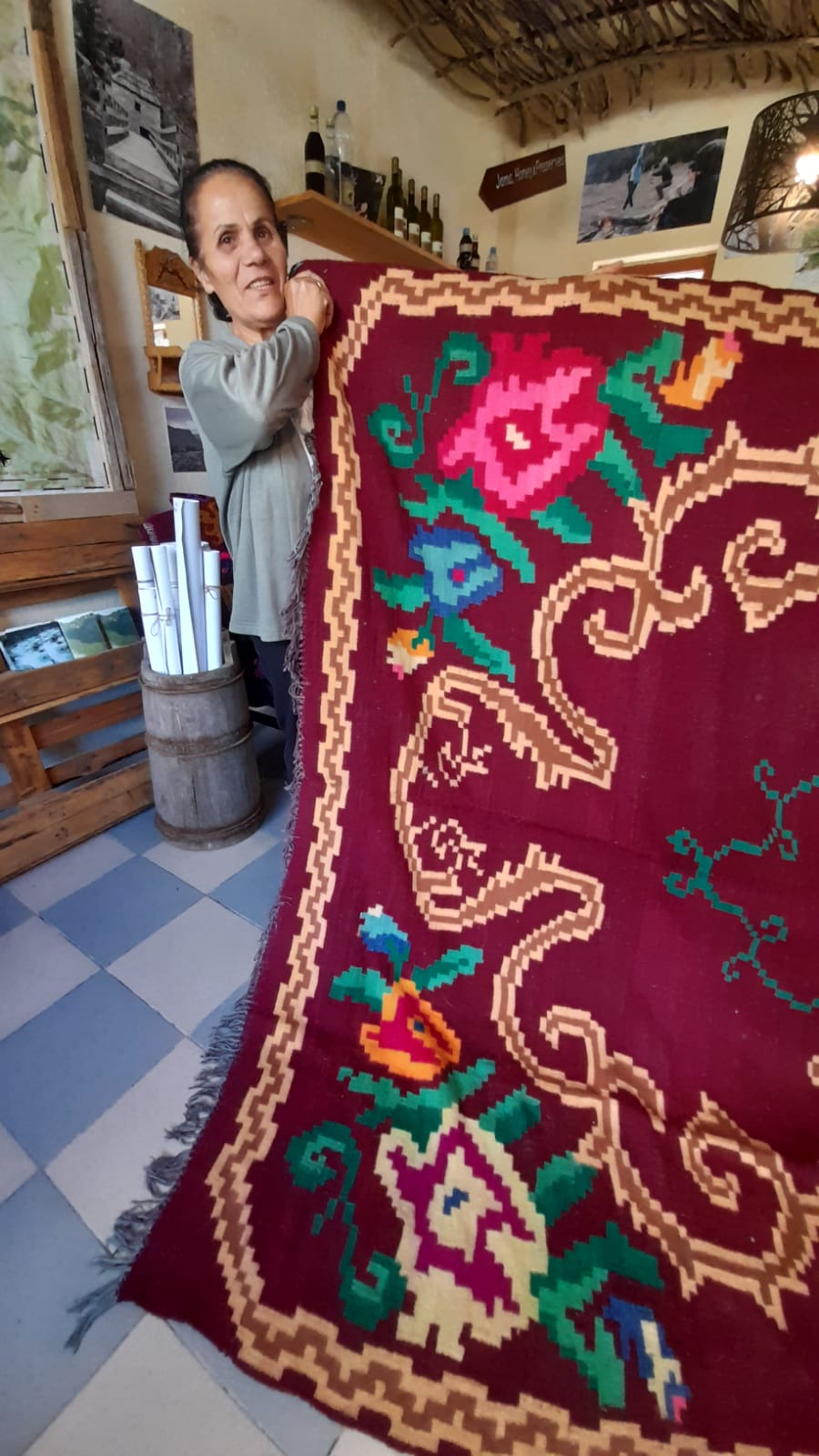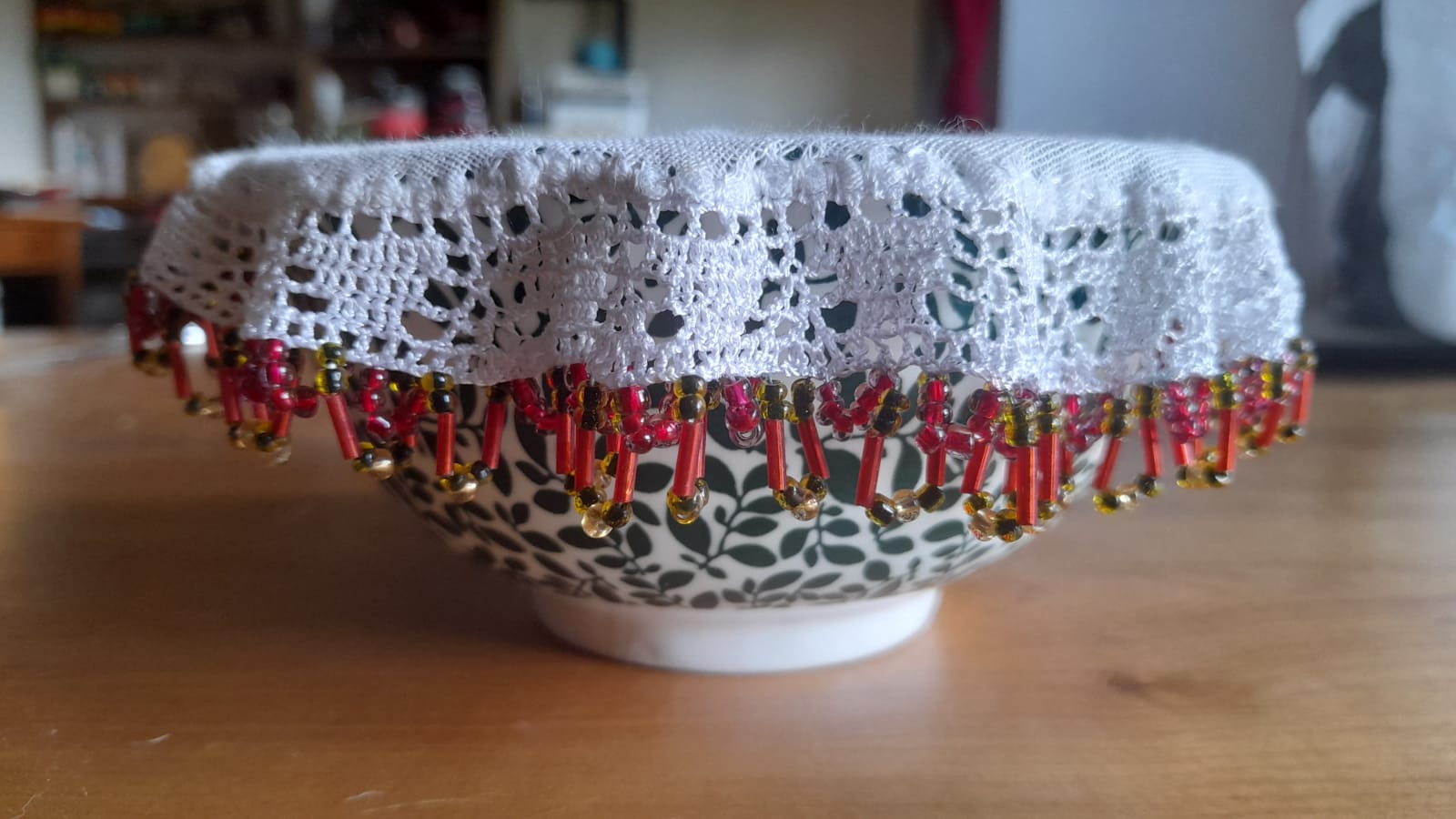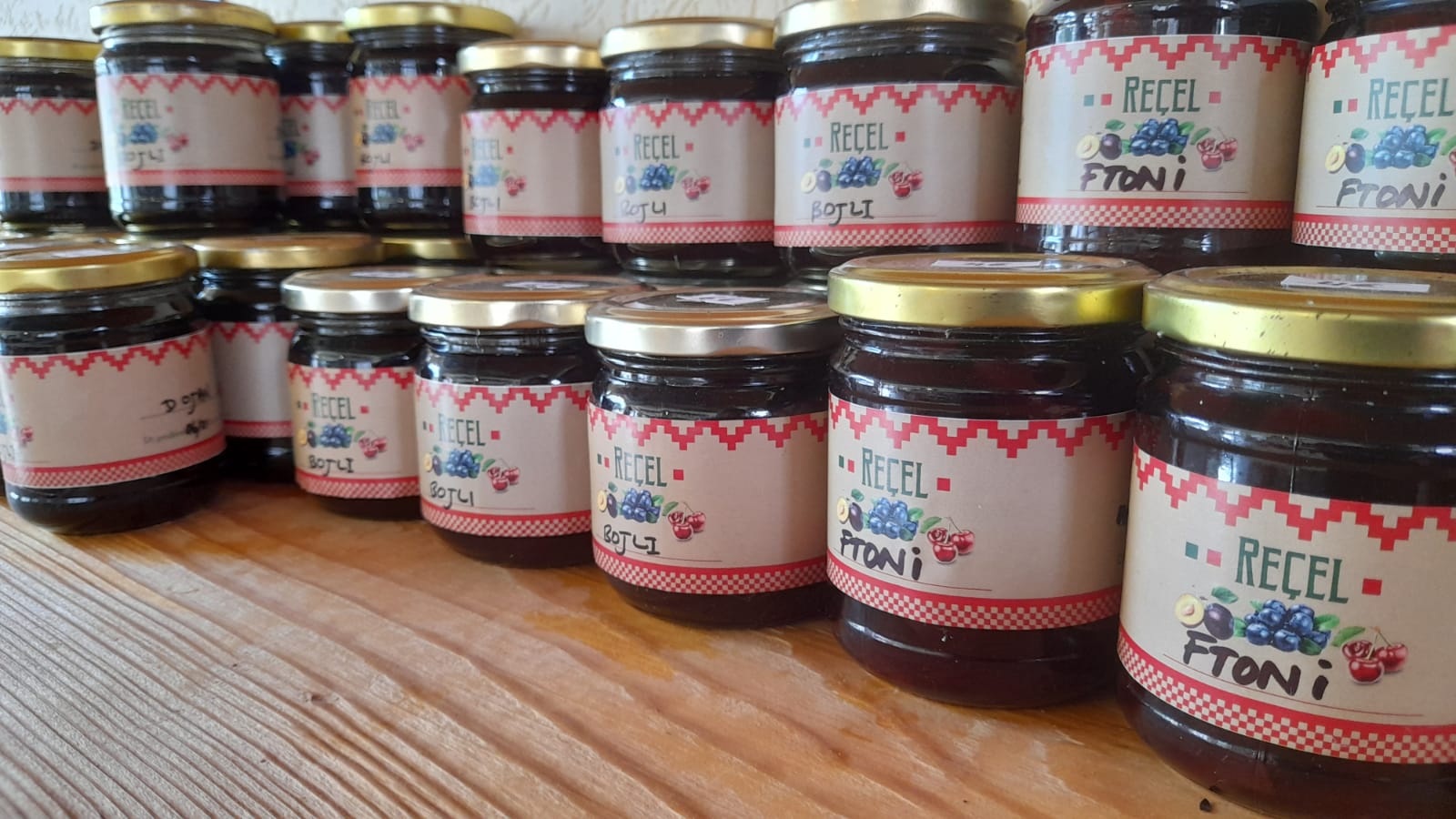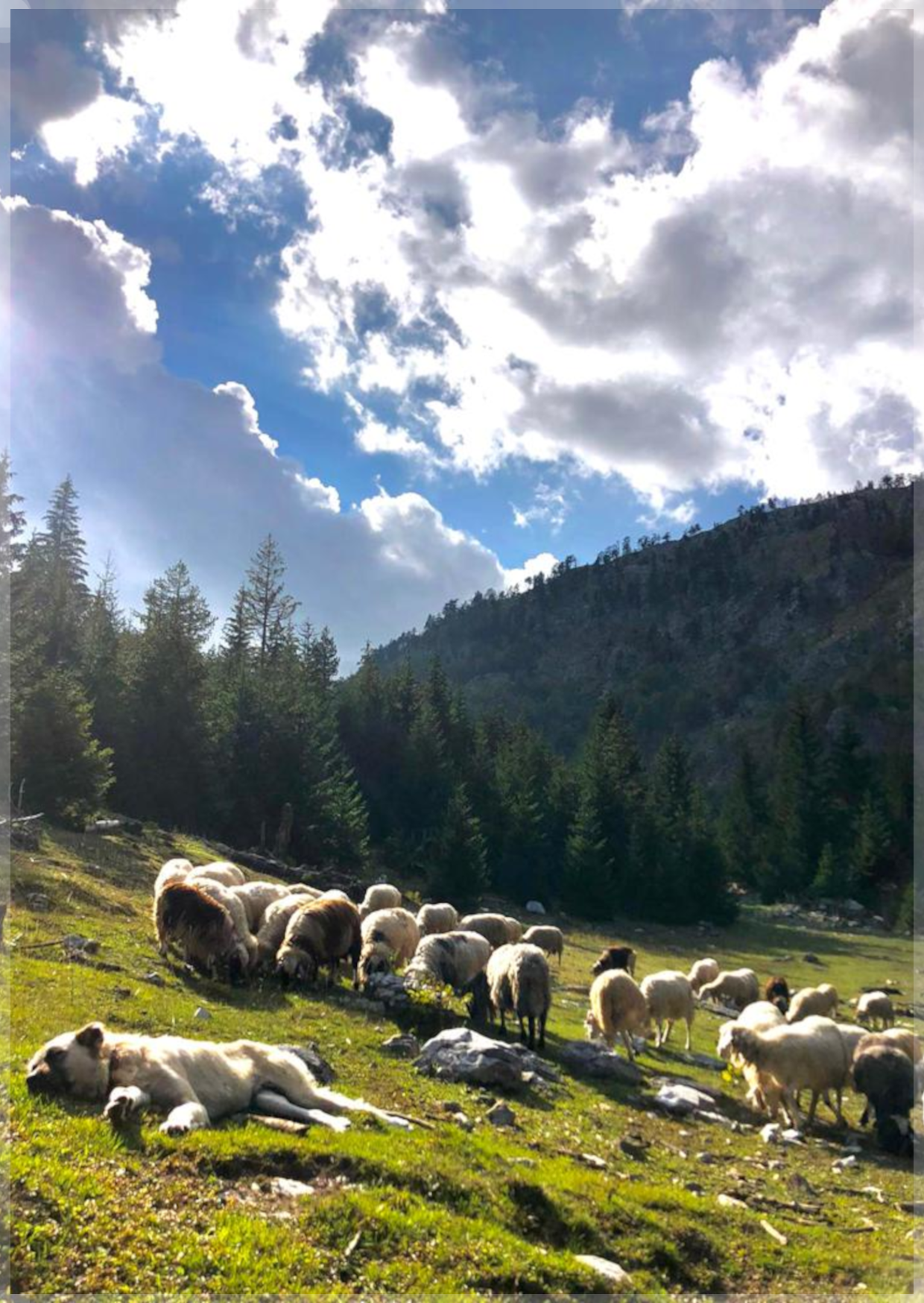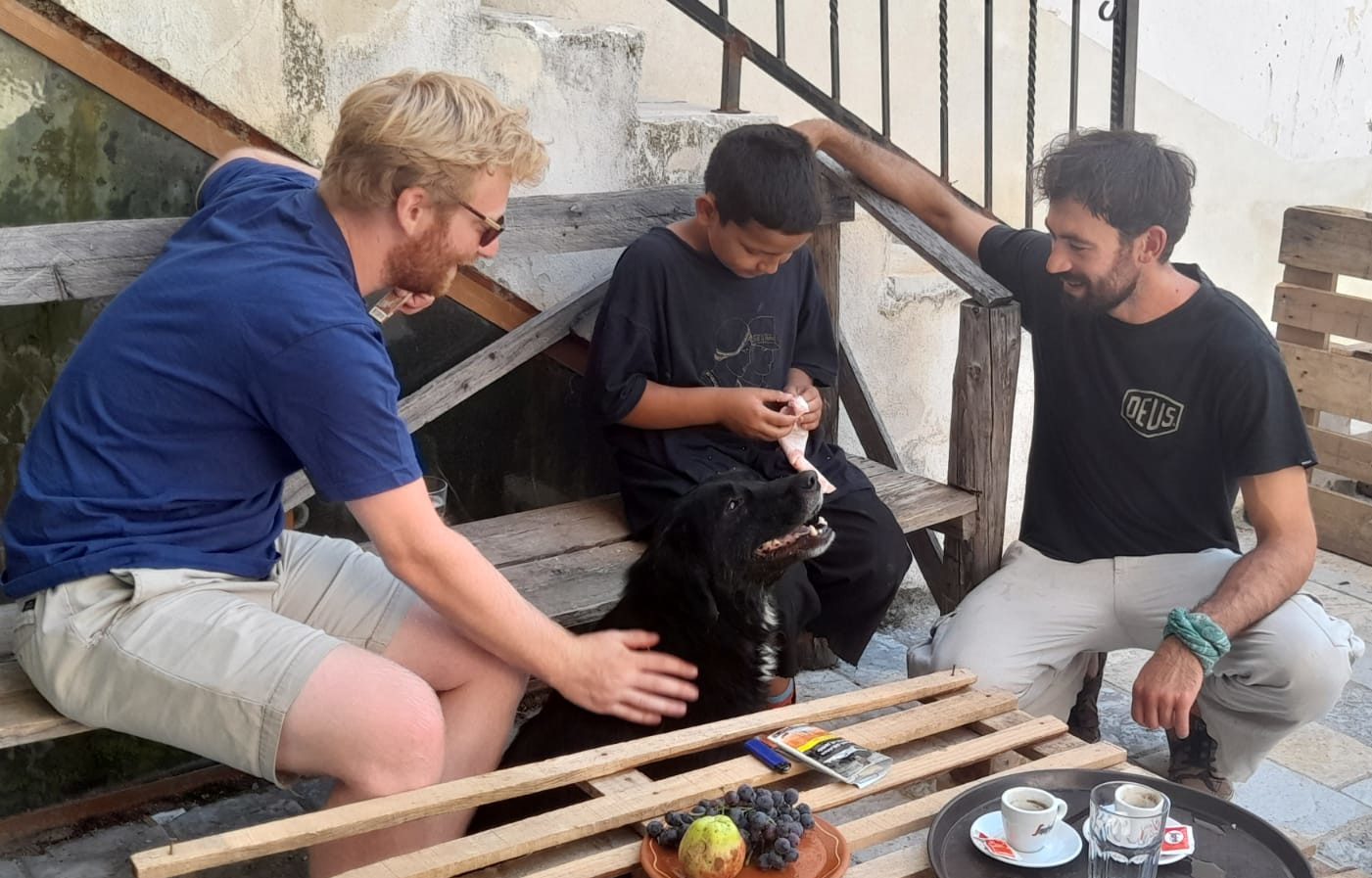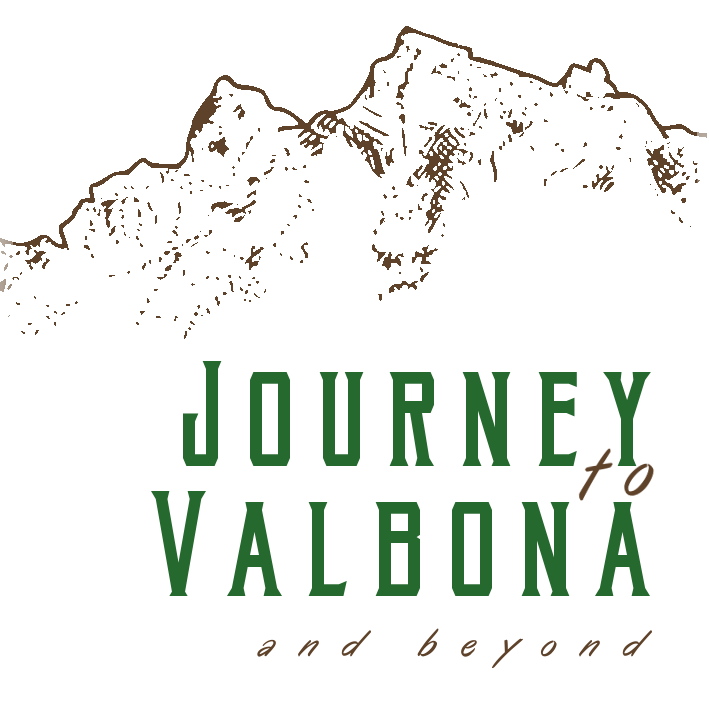Our shop in Bajram Curri
Congratulations! You found us! Well, at least, not yet – cause that would mean we were actually together, but – you know what I mean?
So this is where I get to tell you about our physical location, where you can come and meet us face-to-face – please? The fact is, we have made this super cool shop, representing Tropoja in all her beauty and richness. Subtext is: not only is Albania commonly disrespected in the European community, but within Albania, the North is considered as ‘uncivilized’ by the rest of Albania. Like HECK, we say. Tropoja is gorgeous, and old, and clever, and beautiful. And this shop strives to represent that – so it’s kind of like a small ethnographic museum. It also functions as a community center, an organizing point for women’s economic development, a generally loved local hangout AND a sort of defacto dog-shelter. Basically it’s a really warm, loving, beautiful environment, chock full of information, helpful people just waiting to talk to you, a handful of curious children, and a BUNCH of really cool stuff to, yeah okay, BUY. It’s taken us four (or five?) long years of investing painstaking thought (and a bunch of gratuitous rent money) to make what we wanted to make, but now, in 2022, it’s ready. All it’s missing is . . . YOU! 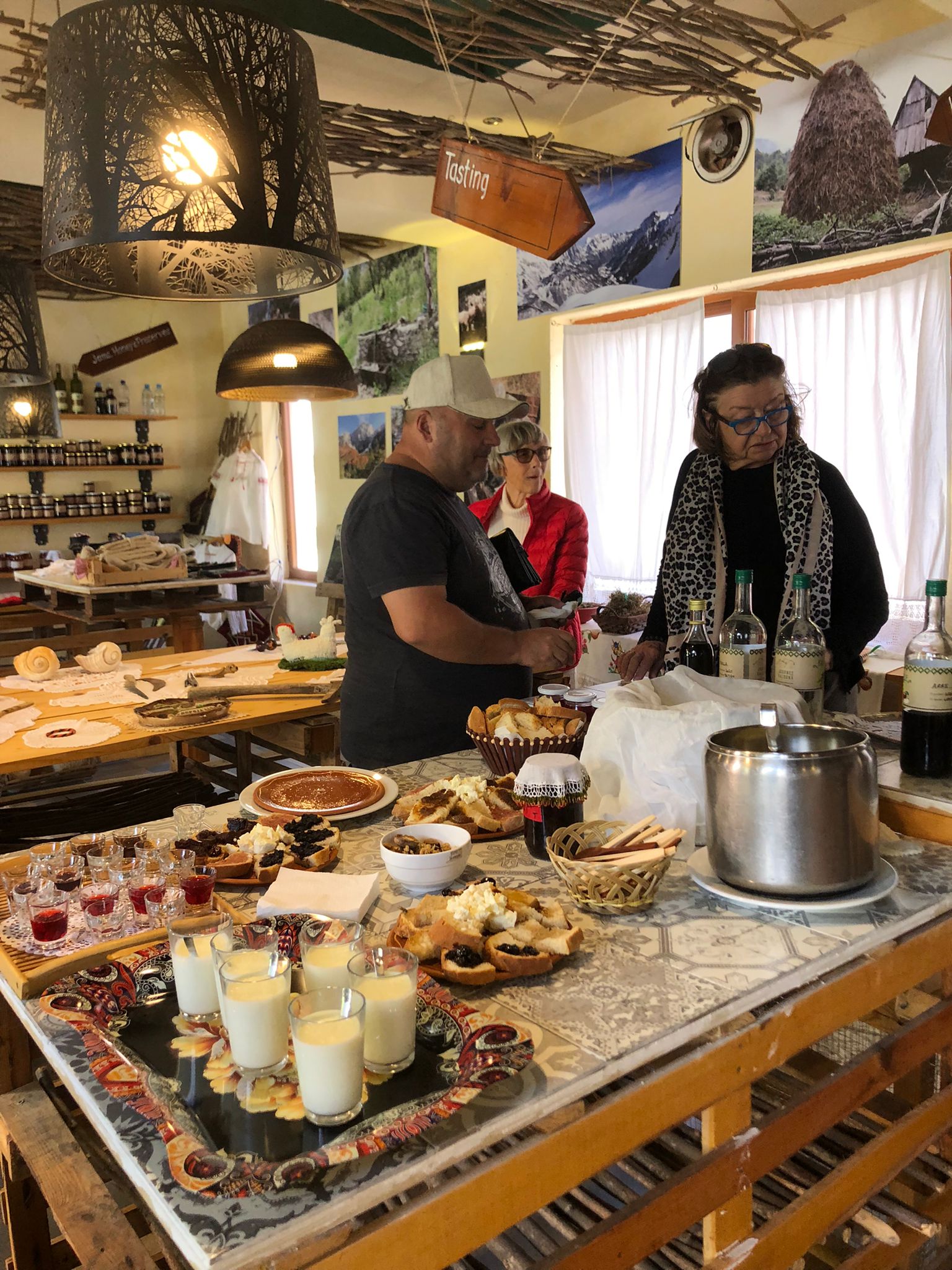
Located in Bajram Curri, on the “pedonale” opposite the museum and the huge statute of Bajram Curri himself (the big guy with a gun in his hand – Welcome to Tropoja!), the shop is designed to make a great entry and exit point for your travel in Tropoja, including – but not limited to – Valbona. Er, and beyond, of course.
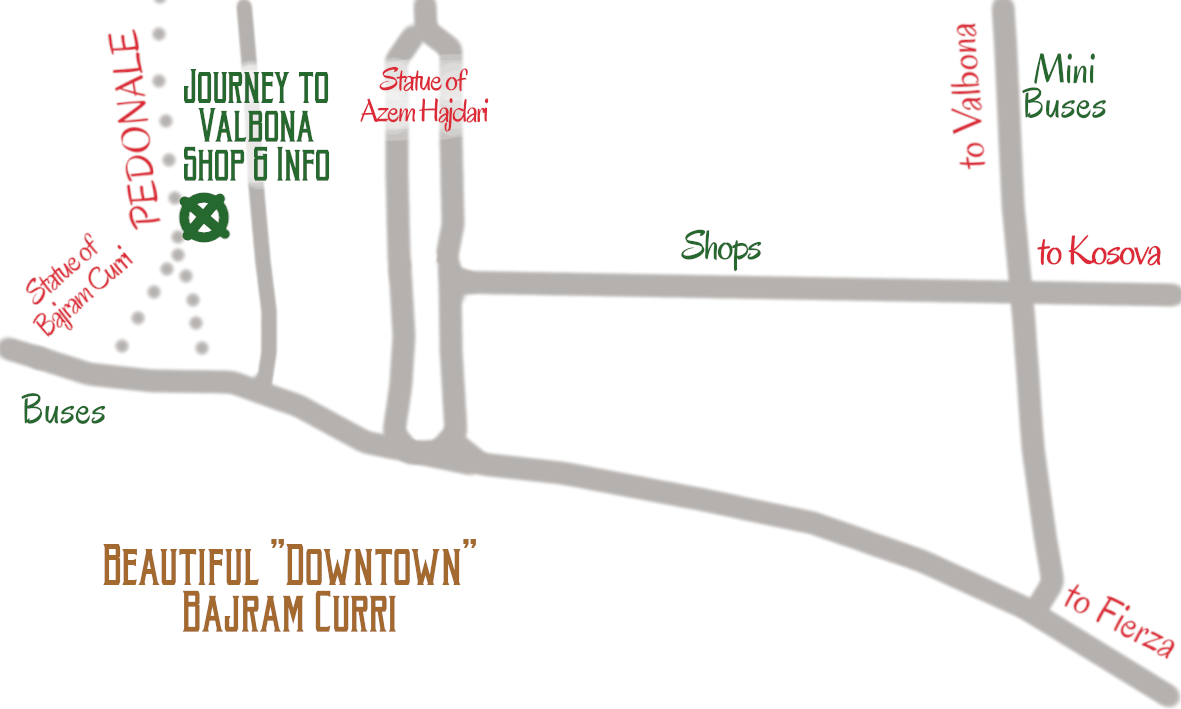 This shop plans to ‘wear a lot of hats’ because, you know, why do anything the simple way?
This shop plans to ‘wear a lot of hats’ because, you know, why do anything the simple way?
You can buy stuff, because . . . well, it’s a shop. What kind of stuff? At the moment we have a stunning selection of local jams, honey and raki. All attractively packaged and making excellent gifts. By which I mean we try to put the jam (raki, honey, etc) in a range of bottle sizes which make sense: There are really tiny jars which will barely make a dent in your luggage (gifts!), but there are also larger sizes (if you actually want to be able to live with something delicious for a while). On the complete other end of the spectrum, we have a PILE of hand made carpets, which local people desperately want to sell, to pay for medical treatments, their children’s education or just to shore up their houses against increasing decay (ie, buy a carpet, save a life! You get to live with something beautiful in your house AND know that your purchase changed a life!). There are hand made doilies and socks (support a woman’s work – but we forewarn you – we price things with respect to the work which went into making them, and pass that price back to the woman. If it takes a woman 3 days to make a beautiful doily, we think she deserves at least 20 euro for the work!) There are medicinal plants and teas and herbs (wild sage! linden tea!) And there’s cheese and frozen wild blueberries. Of course there’s the stuff we make ourselves. Maps! Lots of maps. Flat and folded-with-trail-notes. And THERE ARE POSTCARDS. Okay, postcards aren’t really that exciting, and they’re certainly not profitable, but lots of people seem to snatch then up. So yeah, postcards.
BUT! We are also constantly reaching out to local people, the idea being that although tourism has been growing by leaps and bounds for the past 10 years, it is still mostly only benefiting people with guesthouses, taxis or working as guides. Which seems kind of limited to us. The fact is that every home in Tropoja makes something – probably lots of things! From hand knitted socks to raki, honey to doilies, everyone has something to sell, which could be substantially improving the economic being of, well, everyone! And despite Albania’s recent economic upswing, Tropoja remains one of the poorest parts of Europe (by GNP – lots to quibble about there!) with 60% of people living off of subsistence agriculture combined with public assistance – which is around 30 euro per month for a family. Enough to buy soap and flour, but not pay an electricity bill. Or school books.
But how can local families connect with tourists? Well, obviously they need a shop. So . . . we made one.
